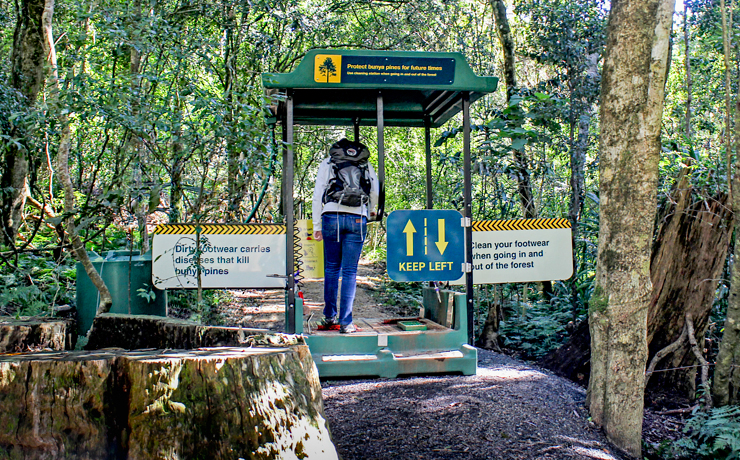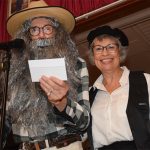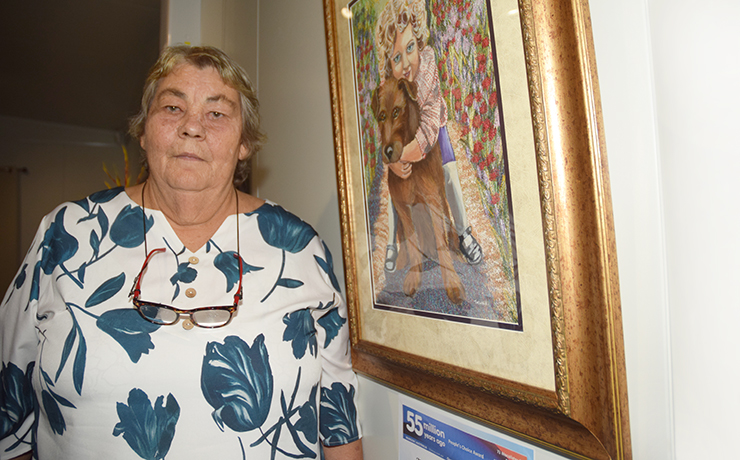
July 20, 2021
Queensland Parks and Wildlife Service has installed boot-washing stations at walking track entrances in Bunya Mountains National Park to help protect bunya pines from a potentially devastating soil-borne disease.
Ranger Adam Taylor said QPWS had been working with expert plant pathologists to investigate why a number of bunya pines in the National Park had become unhealthy or had died.
“Extensive testing of soil and root samples found evidence of two introduced species of Phytophthora, a disease-causing plant pathogen, and scientists think this could be the cause,” Mr Taylor said.
“Phytophthora multivora and Phytophthora cinnamomi are microscopic fungal-like organisms, called water moulds, that live in soil and are spread from place to place in infected soil carried on shoes, machines and other equipment or plants.
“They affect plants by attacking the root system and decreasing the plant’s ability to take up water and nutrients.
“The Bunya Mountains are home to the largest stand of bunya pines remaining in the world and are of great cultural importance to First Nations peoples. It’s important we protect them from harm and stop the disease spreading to other areas within the national park.
“As the first line of defence, QPWS will install boot-washing stations at all walking track entrances throughout the Bunya Mountains National Park so that visitors can clean their boots on their way in and out of the forest.
“At each station, walkers will be able to use a brush to remove any soil before using a non-toxic, non-corrosive and biodegradable disinfectant to clean their boots.
“The soil and disinfectant solution will be collected in a tank and removed for further treatment before being disposed of safely.
“The boot-washing stations are manufactured in Aotearoa, New Zealand, where they are effectively used to fight Phytophthora-induced Kauri dieback disease.”
Mr Taylor said plant pathologists from the Department of Agriculture and Fisheries were working with universities on laboratory testing to confirm bunya pines and hoop pines show signs of disease when infected with Phytophthora.
“With support from HQ Plantations, scientists are also trialling infecting fungicide into 50-year-old plantation bunya and hoop pines in the hope of developing a potential treatment for affected trees,” he said.
* * *
QPWS says visitors to the Bunya Mountains National Park can help protect bunya pines by following some simple tips:
- Clean footwear and equipment before you visit
- Use boot-washing stations to clean footwear and equipment (such as walking poles and pram wheels) when going in and out of the forest
- Avoid going off designated walking tracks, and do not enter areas affected by closures
- Never assume anywhere is disease free
- Keep a spare set of shoes and a cleaning kit in your vehicle
- Buy gear that is easy to clean
























